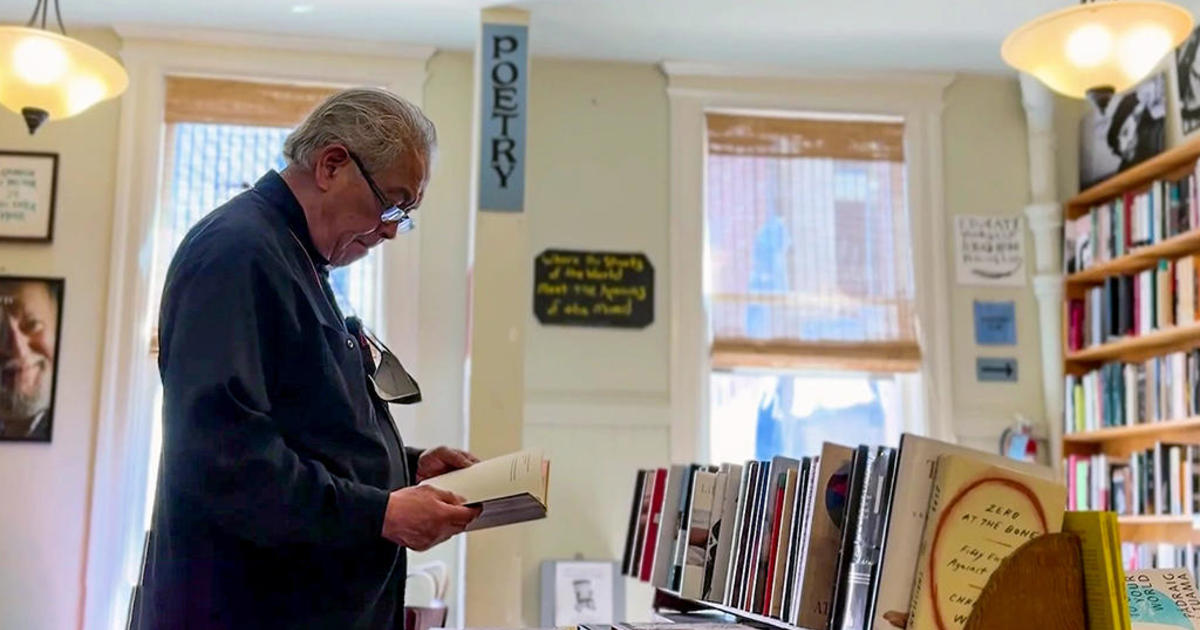Judge Refuses To Dismiss Lawsuit Accusing SoFi Of Denying Loans To Immigrants
SAN FRANCISCO (BCN) -- A federal judge Monday refused to dismiss a civil rights class action against Social Finance Inc., or SoFi, a San Francisco-based online lending platform, that allegedly denied loans to immigrants who were legally residing in the United States when they applied for credit.
SoFi was founded in 2011 by a group of Stanford business school grads to help people refinance student loans at lower rates. In the years since SoFi has expanded the services and products it offers to its 1.6 million-plus members.
The SoFi online platform offers members discounted loans, financial advice, as well as the ability to invest in stocks (including IPOs) and cryptocurrencies. Member benefits described on its website include "money hacks" and "swag giveaways" as well as career advice and member events.
Today the company stands on the cusp of going public through a merger with a special purpose acquisition company, or SPAC, as a way to bypass the delay and expense of an initial public offering. The merger values SoFi at $8.65 billion, according to a company statement.
The lawsuit was filed in May 2020 in the U.S. District Court for the Northern District of California
The two named plaintiffs are each non-citizen immigrants who are legal residents of the United States. Ruben Juarez is a Deferred Action for Childhood Arrivals (DACA) recipient. Calin Constantin Segarceanu, a Romanian national, holds a green card and has the immigration status of "conditional permanent resident," according to the complaint.
The plaintiffs sought to certify several classes, including a class on behalf of all "all non-United States citizens who resided in the United States and had DACA at the time they applied and were denied or unsuccessfully sought to apply for any SoFi Loan."
They also identified a class of non-United States citizens who were Conditional Permanent Residents at the time they were denied any SoFi loan.
The complaint states that Juarez was born in Mexico and has lived in the US since he was ten years old. He obtained DACA status in 2012 and a Social Security number that same year.
He went to college in New York and obtained a bachelor's in accounting and a master's degree in global finance from Fordham in 2016. After graduating he began to work in finance for a number of well-known companies, including JPMorgan Chase.
To finance his education, Juarez incurred private student loans with an interest rate of 8.6 percent, according to the filing. When he first applied for a refinance loan from SoFi, its members were offered rates of between 3 and 4 percent.
He applied online, but when he was not able to say that he was a U.S. citizen, a visa-holder or a "lawful permanent resident," he was not permitted to proceed.
Thereafter SoFi sent him student loan financing offers in 2017, '18 and '19, but when he attempted to apply he was again denied, although he alleges that he had an excellent credit score and was creditworthy.
Segarceanu came to the U.S. in 2015 on a student visa and earned bachelor's and master's degrees in computer science from Illinois Institute of Technology. The complaint says he is employed as a software engineer for Amazon Web Services. In 2018 he married a U.S. citizen. He then applied for permanent residency and obtained a conditional green card.
He attempted to apply to SoFi for a personal loan hoping to reduce the nearly 20 percent interest rate on his credit card, but was rejected because of his immigration status.
In the lawsuit, Juarez and Segarceanu asserted several claims, including a civil rights claim based on an 1866 statute that states that "all persons within the jurisdiction of the United States shall have the same right in every State and Territory to make and enforce contracts ... and to the full and equal benefit of laws and proceedings for the security of persons and property as is enjoyed by white citizens..."
The U.S. Supreme Court has previously determined that the statute protects non-citizens as well as citizens.
SoFi sought to avoid the reach of the statute by arguing that it was not discriminating against plaintiffs based on citizenship status or alienage, but rather that the application process "takes immigration status into account," noting that non-citizens with long term permanent residency status and some visa-holders may obtain SoFi credit.
U.S. District Court Judge Haywood S. Gilliam, Jr. noted that the broad purposes of the statute -- prohibiting racial discrimination in the creation and enforcement of contracts -- were intended to cover all immigrants lawfully present in the country. Because plaintiffs were each lawfully present they were entitled to assert claims for discrimination.
SoFi requested the judge to send the case to arbitration based on the fact that Juarez had clicked a box in the application in 2016 that said he consented to arbitration. However, the judge denied the request, finding found Juarez had applied several times after 2016 and had not consented at those times.
SoFi asked the court to strike the class action allegations of the complaint on the grounds that plaintiffs tried to challenge lending activities beyond the loan categories that they applied for, but the court determined that those challenges were more properly asserted in the future when the court considered whether to certify the requested classes.
Moira Heiges-Goepfert, counsel for the plaintiffs, said the case was one of a small group of "novel" cases that apply the post-Civil War civil rights statute to alienage as well as race in the context of lending.
In her view, the case highlights the purpose behind the DACA. "It was to help... immigrants who were brought into the country as children to come out of the shadows and have the ability to participate in American life."
Lawyers for SoFi did not respond to a request for comment.
© Copyright 2021 CBS Broadcasting Inc. and Bay City News Service. All Rights Reserved. This material may not be published, broadcast, rewritten or redistributed.



